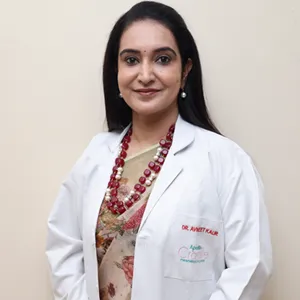Hormones govern how a kid grows and matures. Hormones are released into the bloodstream by endocrine organs such as the pituitary gland. Endocrinology is the study of these glands and the impacts of hormones. A paediatric endocrinologist may treat your child if he or she has problems with growth, puberty, diabetes, or other disorders related to hormones and the glands that generate them.
What is paediatric endocrinology?
Paediatric endocrinologists diagnose, treat, and manage the following hormonal disorders in children: growth problems, diabetes, early or delayed puberty, an enlarged thyroid gland, an underactive or overactive thyroid gland, pituitary gland hypo/hyperfunction, low blood sugar (hypoglycemia), adrenal gland hypo/hyperfunction, ambiguous genitals/intersex, ovarian and testicular dysfunction, obesity, and vitamin D problems (rickets, hypocalcemia).
Why should you visit a paediatric endocrinologist?
If your child's paediatrician or primary care doctor has identified a particular condition, such as diabetes, or if they suspect a problem with your child's puberty or growth, you should take him or her to a paediatric endocrinologist.
When should I take my child to a paediatric endocrinologist?
You are required to take your child to a paediatric endocrinologist if you find any symptoms or a diagnosis of the following endocrine disorders:
- Thyroid (hyperthyroidism and hypothyroidism)
- Diabetes.
- Early onset or delayed puberty.
- Deficiency of growth hormones (shortened height)
- Tumours
- Turner syndrome
What should I expect from a visit with a paediatric endocrinologist?
Your child may be subjected to diagnostic tests such as bloodwork and X-rays.
Once a diagnosis is made, the doctor will recommend a treatment strategy, which may include
- Counselling,
- Medication,
- Exercise,
- Diet plan,
- Surgery or Radiation.
What are the benefits of paediatric endocrinology?
Hormone imbalances that affect growth or sexual development can have serious consequences for a child's physical and mental well-being. Paediatric endocrinologists are aware of these concerns.
A paediatric endocrinologist treats your child in a setting suitable for children and adolescents. Nurses, psychologists, paediatric diabetes educators, and nutritionists are all sensitive to the needs of children and teenagers.
Paediatric endocrinologists must collaborate closely with primary care paediatricians to provide coordinated and comprehensive treatment to children with special needs. Paediatric endocrinologists have significant training and experience working with children, as well as treating children with endocrine disorders and hormonal issues.
Conclusion
Paediatric endocrinology is a branch of medicine that deals with disorders of the endocrine system in children. The endocrine system regulates hormone production in the body. The endocrine system plays a critical role in the growing process and many normal developmental processes during childhood. As children grow, their endocrine systems also develop.
Request an appointment at Apollo Cradle, DELHI-NCR - Moti Nagar. Call 1860-500-4424 to book an appointment.
One of the most common chronic childhood illnesses is type 1 diabetes. One in every 400 infants and adolescents under the age of 20 is affected. Children of this age can also develop a range of other endocrine disorders.
Endocrine Disorder Symptoms include such things as: 1. Fatigue. 2. Vision changes. 3. Excessive thirst and appetite. 4. Nausea and vomiting. 5. Urination is constant. 6. Weight gain or reduction that is unexplained.
Many common endocrine problems cannot be cured, but they can be successfully treated with medication and/or a shift in lifestyle.
Vegetables and fruits rich in calcium, vitamin C, and B vitamins are essential for hormone formation and activity. Leafy greens such as kale, spinach, broccoli, beet greens, mustard greens, and asparagus are excellent sources of vitamins and minerals.
Parents should take their child to a qualified healthcare provider for evaluation and diagnosis immediately.

 92% Patient Satisfaction Score
92% Patient Satisfaction Score




